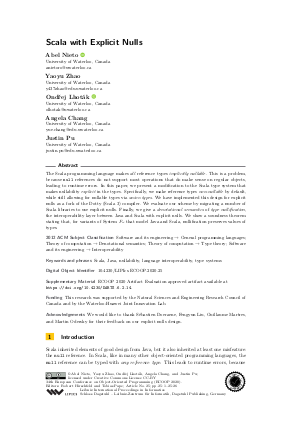LIPIcs.ECOOP.2020.25.pdf
- Filesize: 0.73 MB
- 26 pages

 Creative Commons Attribution 3.0 Unported license
Creative Commons Attribution 3.0 Unported license





















Feedback for Dagstuhl Publishing